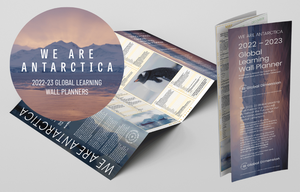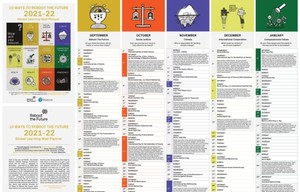Aims & Objectives:
Lessons will encourage pupils to engage with their sense of curiosity, inviting and exploring the feeling of awe and wonder in our everyday lives.
Students will be invited to reflect on the sensations of awe whilst exploring some of the stimulus of this feeling - from rainbows, mountains and waterfalls to music, dancing or stargazing - connecting with our emotional responses to the extraordinary world around us.
They will learn to ask big questions and feel engaged and confident with the idea of the ‘unknown’, learning to embrace the mystery and magic of life as something to cherish and treasure. Lessons invite practices for recognising and appreciating wonder in the everyday as well as the wider world.
All of our programmes encourage the practices of critical thinking & questioning, deep listening, empathy building and thinking in systems (understanding how things connect) by engaging in a wide range of learning stimulus, discussion ideas and creative exercises.
What You Will Explore:
LESSON 1 | IMMERSE | Feeling inspired
Thinking about and exploring what inspires us and makes us feel awe and wonder.
LESSON 2 | UNDERSTAND | I wonder why…
Exploring the feelings generated when we experience awe and how to respond to ideas bigger than our understanding or awareness.
LESSON 3 | EXPLORE PERSPECTIVES | What makes a wonder?
Discussing some of the different wonders of the world and exploring what it is about something which fills us with awe.
LESSON 4 | EMPOWER | Be amazed
Reflecting on our place in the universe and reflecting on the importance and benefits of finding ways to experience awe and wonder on a daily basis.
Topics
Compassionate Values, Health and Well-being
Age Ranges
KS1: ages 5-7, KS2: ages 7-11, KS3: ages 11-14, KS4: ages 14-16, KS5: ages 16+
Subjects
Citizenship, Philosophy / P4C / Critical thinking, PSHE / PSE / PSED, Assembly, Spiritual, moral, social, cultural (SMSC)







